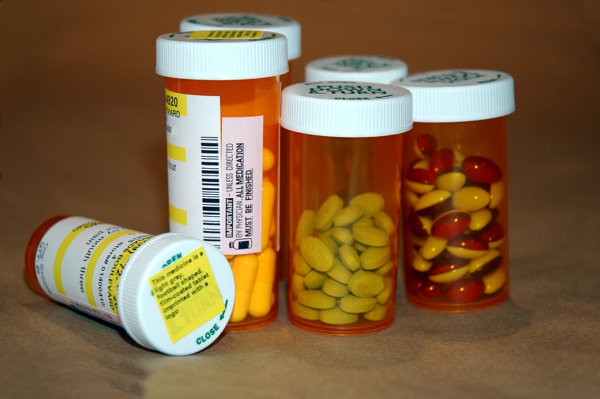
Meth Withdrawal Symptoms: Detox Timeline – Methamphetamine (meth, crystal meth, or ice) a very potent, highly addictive synthetic stimulant drug that has become increasingly popular with drug users in recent decades. Meth typically presents as a crystalline powder or as small bluish/whitish rocks or shards of glass, and is typically snorted or smoked, but can also be diluted with water and injected.
This drug can be manufactured in small clandestine labs with simple ingredients available at pharmacies and stores that carry common household chemicals, such as ammonia and paint thinner. It has also become increasingly accessible through larger foreign manufacturing sources, especially from Mexico.
Meth Comedown
When meth is administered, the drug reaches the brain where it prompts the release of neurotransmitters such as dopamine and serotonin. These chemicals in turn increase alertness, energy, and sociability. Meth’s effects may continue for up to eight hours, but once the drug begins to wear off, comedown effects can cause the person to feel very ill.
A comedown is a bit different from withdrawal, but there are a few aspects and effects of the process that are similar. Meth comedown symptoms include:
- Feelings of hopelessness
- Depression
- Mood swings
- Muscle weakness
- Decreased appetite
- Fatigue
- Lack of motivation
- Anxiety
- Insomnia
- Headache
- Jaw clenching
- Muscle pain
Comedown symptoms may persist for a few days after excessive use, especially any mental health changes that have occurred, such as depression and anxiety. If the person abstains from further meth use, these symptoms will resolve on their own.
Meth Binges
Many people who abuse meth take more to forestall the unpleasant comedown symptoms as they appear. Because the comedown is inevitable, the person repeatedly uses meth in a binge pattern that can last for days at a time. Such particularly bad binges are referred to as “tweaking.” The longer a person binges, the worst the side effects become once they discontinue use or finally “crash.”
After several days of binging, the body no longer sustains a high due to the brain’s propensity to diminish effects in response to repeated exposure. Tweaking occurs when the person engaging in meth abuse does not sleep for several days, experiences intense paranoia, and develops various degrees of temporary psychosis.
Moreover, the initial euphoria from meth no longer occurs after a few doses. However, the person still struggles with all the other effects of meth, including hyperactivity, overheating, dehydration, loss of appetite, physical pain, anxiety, irritability, and aggression.

While tweaking, the person will develop obsessive or repetitive behaviors, like taking objects apart and putting them back together or compulsively cleaning. And because they lack sleep and their brain is under so much stress, the person may also experience hallucinations and delusions, leading to psychotic behavior, not unlike that of schizophrenia.
Formication is another effect of tweaking that is characterized by hallucinations that mimic the effect of bugs crawling on or under the skin. This symptom causes sufferers to repeatedly scratch or pick at their skin, which can lead to tissue damage and infection.
A meth binge can result in profound mental and physical exhaustion. A person may experience malnutrition and appetite suppression and is likely to sleep for several days. Repeated attempts to avoid a comedown after binging can lead to dependence and addiction.
Withdrawal from Meth
There is a significant amount of research that has documented the effects of withdrawal in chronic meth users. The timeline for meth withdrawal is relatively consistent and offers some insight into what medical personnel and those in recovery can expect.
Withdrawal symptoms from meth are primarily emotional with various associated physical effects. The withdrawal process from meth does not appear to be as consistently severe as withdrawal from alcohol or opioids. Any associated symptoms are probably not going to be physically damaging unless the person tries to detox alone and becomes emotionally unstable, which can lead to self-harm and suicidal behavior.
Meth has a relatively short half-life (around 10 hours) and is a fast-acting drug. According to research, the timeline for withdrawal from meth remains relatively consistent among users:
- Withdrawal symptoms onset within the first 24 hours of abstinence.
- Symptoms reach their peak within the first 7-10 days following cessation of drug use, and there is a constant decline in the severity of symptoms following this peak.
- Prolonged emotional symptoms have an average duration of about 14-20 days, but most commonly end after about two weeks.
According to research, primary symptoms during this withdrawal period typically include the following:
- Feelings of fatigue, lethargy, and excessive sleepiness
- Increased appetite
- Dry mouth
- Episodes of jitteriness
Also, a significant number of people report feelings of depression or apathy, which tend to decline gradually throughout the withdrawal period. These depressive symptoms can be serious, however, and may be associated with thoughts of suicide. Extreme cravings for meth can also occur during the withdrawal process but have been observed to decline over time.
Psychotic symptoms including paranoia, delusions, and hallucinations also occur in many people. These symptoms need to be addressed and treated in a clinical environment. Research has indicated that the most dangerous symptoms associated with meth withdrawal tend to be severe depression and the potential to develop psychosis.
Also, some research has suggested that individuals who engage in meth use for a prolonged period may exhibit some cognitive impairments in the areas of mental processing speed, memory, attention, and planning that are not fully restored within six months of abstinence.
Medications for Withdrawal

Although there are currently no pharmaceutical treatments approved by the FDA for use during meth detox, there are several medications that can help to manage some of the symptoms that manifest during the process of withdrawal:
Wellbutrin (bupropion)—An antidepressant, which according to research, may be useful in relieving some of the symptoms of withdrawal in people who have abused meth. It can reduce drug cravings, and appears to be more suitable for light to moderate meth use disorders.
Provigil (modafinil)—A prescription drug and stimulant that is used for the treatment of ADHD and narcolepsy. The mild stimulant properties of this medication can help to reduce disruptive sleep patterns and may also help those in detox temporarily experience increases in energy and improved concentration, which may be critical components when moving forward into recovery.
Paxil (paroxetine)—A selective serotonin reuptake inhibitor, which is an antidepressant medication that has been found in some studies to reduce cravings in abstinent meth users going through withdrawal.
Remeron (mirtazapine)—An atypical antidepressant that can help to prevent relapse during withdrawal.
Treatment for Meth Addiction
If a person discontinues meth use and encounters intense withdrawal symptoms, this is a surefire indication of a chemical dependence, which is a significant component of addiction. Persons who undergo detox in either a clinical environment (recommended) or at home are urged to seek comprehensive treatment at a specialized facility such as Recovery By The Sea.
We employ a highly-trained team of health professionals and addiction specialists who collaborate to assess each client and develop customized programs. Our evidence-based services include psychotherapy, counseling, group support, aftercare planning, and more.
If you or someone you love is suffering from an addiction to meth, please contact us today. Discover how we help our clients free themselves from the grips of addiction and reclaim the fulfilling lives they deserve!